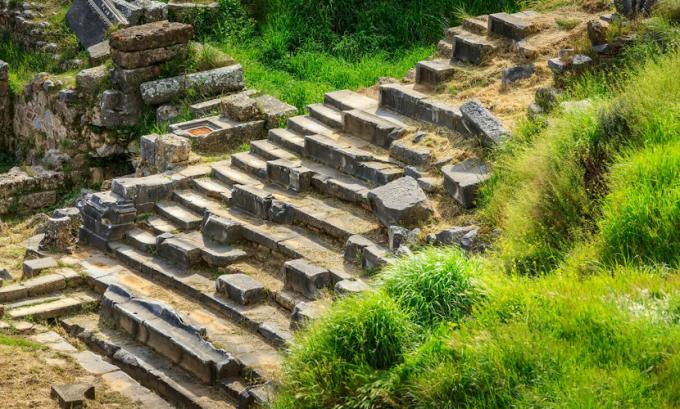THE arrival of the Portuguese royal family in Brazil, at the beginning of the year 1808, deeply marked the history of the two nations. Since then, Brazil, which was a colony of Portugal when the Portuguese Court landed in its territory, it became the seat of the entire administrative command of the Portuguese Empire, until, on December 16, 1815, it was elevated to Kingdom.
And what was previously called the Kingdom of Portugal became known as the Kingdom of Portugal, Brazil and the Algarves. With that, a series of transformations occurred from the point of view political, economic and social, strongly contributing to the process of Independence of Brazilthere, in 1822.
Read too: September 7th – Independence Day of Brazil

Why did the Royal Family move to Brazil?
In the year 1804, Napoleon Bonaparte he became Emperor of France and aimed to conquest of new territories. To fight Revolutionary France,
monarchiesFrom the end of the 18th century, Europeans formed three coalitions: First Coalition (1792-1797), Second Coalition (1799-1802) and Third Coalition (1803-1805).At that time, England was emerging as the main economic power and with a powerful navy. After successive battles, France began to stand out with its mighty army. However, Napoleon was unable to overcome the British Navy and, in an attempt to weaken England, he decreed, in 1806, the "Continental Lock", whose main objective was to prohibit the European countries to trade with England and thus harm it economically.

Since the 14th century, Portugal and Great Britain had had a strong diplomatic alliance, known as Luso-British Alliance, which officially exists to this day. Faced with the impasse of the Continental Blockade, Portugal refused to obey the orders of Napoleon, who, in turn, decided to march his troops towards the country.
Portugal was unable to resist French troops and was under the regency of D. Pedro VI since 1792, after his mother, Maria I of Portugal, was considered “crazy”. Under Napoleon's threats, D. John VI opted for Court transfer from Lisbon to Rio de Janeiro, which, after 1815, became the capital of the United Kingdom of Portugal, Brazil and the Algarves.
Read too: French Revolution: Summary, Causes and Consequences
→ boarding
On the 25th and 27th of November 1807, between 10 and 15 thousand people boarded in ships, frigates, brigs and Portuguese schooners heading to Brazil under the protection of 4 English ships. Entire administrative bodies, Court officials, Supreme Court justices, members of the high clergy and, among other things, several libraries, which resulted in the formation of the National Library of Rio de Janeiro.
→ Crossing
During the crossing, the fleet encountered various difficulties, getting to be split by a storm. The lack of basic supplies such as food, water and clean clothes was also reported, due to the excessive number of people and the almost three months of travel.
Arrival of the royal family in Brazil: main changes
In January 1808, the Portuguese fleet sighted Salvador. On the 24th of the same month, in Salvador, D. John signed the “Decree to Open Ports to Friendly Nations”, which, in addition to being considered by many historians as a first step towards the independence of Brazil, also put an end to the Colonial Pact.
With this measure, the Rio de Janeiro became the main destination for English manufactured products. This decision was therefore beneficial both for the English themselves and for Brazilian rural producers, who would now be freed from the metropolis' commercial monopoly. On March 8, the Portuguese royal family landed in the city of Rio de Janeiro, strongly impacting the city and the kingdom in several aspects.
→ economic changes
It is important to emphasize that at this historical moment, the 19th century, the world was going through a series of political, economic and social transformations. THE industrialization it dictated the directions of economic development and, in this sense, England was far ahead of other countries.
With that, D. João IV took some measures in an attempt to promote industrial activity in the kingdom, revoking decrees that prohibited the installation of factories in the colony, offering subsidies to certain industrial sectors, tax exemption on the acquisition of raw materials for industry, among others stuff.
Furthermore, with Portugal still occupied by French troops, D. João needed to bring into legality an existing smuggling network between England and the colony to collect taxes related to these transactions. It was in this context that he signed the Decree for the Opening of Ports to the Friendly Nations in January 1808, that is, the economic transformations that were happening, inevitably, in world trade explain to a large extent the reasons why, shortly after arriving in Brazil, the Prince Regent signed this measure. It was also in 1808 that D. Pedro VI founded Banco do Brasil, which exists to this day.
The economic impacts from then on directly influenced the independence of Brazil after the return of the Portuguese Court to Lisbon. However, immediately, D. João had to make several concessions to both British and Brazilian merchants in an attempt to 'correct' distortions and respond to protests. Another measure that had a strong impact on the economy of the then colony was the growing pressure from the British for Portugal to abolish the slave trade.
See more: What were the abolitionist laws?
→ social changes
With the establishment of the royal family, court officials, high clergy and nobles who would have come with the transfer, the city of Rio de Janeiro it even changed its physiognomy. Your population practically doubled in number, going from 50 thousand to approximately 100 thousand people.
With the arrival of entire libraries, the circulation of ideas and debates became more frequent. Thus, there was the emergence of new press vehicles, the establishment of artists, new constructions were made, among many other things, which reconfigured the urban life of Rio de Janeiro.
In June 1815, Napoleon was defeated in the episode that became known as Battle of Waterloo. From then on, Portugal and France resumed their diplomatic relations. Since the end of the 18th century, with the expulsion of the Jesuits from Brazil, there was an intellectual and artistic void. D. João VI, realizing the need to fill these spaces, together with the diplomatic rapprochement with France after 1815, supported the hosting a group of French artists, led by Jacques Le Breton. In 1816, this group landed in Rio de Janeiro.
This movement was responsible, in its time, for aligning Brazil with Europe in artistic and aesthetic ideals, especially with the introduction of the school neoclassicist. However, the mission also encountered strong resistance from established artists, who joined the artistic tradition baroque.
→ Political changes
With the arrival of approximately 15 thousand people to the State of Brazil, including Portuguese and foreigners of other nationalities, a series of divergent interests began to consolidate and dispute spaces of power. Although there were still no political parties in Brazil, a cluster of merchants, landowners and slaves came to be recognized as the Party of Brazil.
The emergence of this group occurred after the Porto Revolution, in 1820, and exerted a strong influence on the politics of the period.. They were even the main responsible for the political pressure that culminated in convincing D. Peter I to stay in Brazil and then declare the independence, in 1822. After 1831, during the Regency Period, members of this informal group established themselves in the Moderate Party, which was therefore the successor of the Partido do Brasil.
Furthermore, an enlightened elite also began to emerge in Brazil, with theoretical references from liberalism and other ideas current in Europe. This led to the formation, also in 1831, of the Liberal Party, whose members were known as Lucias.
As these are influences of ideas, it is difficult to measure the real impact of the transfer of the court on the political environment of the period.Some of its manifestations are more immediate, such as those mentioned above. However, there is no doubt that the contact with these ideas and the very status that the colony acquired from that contact brought irreversible consequences for the formation of an independent Brazil.


